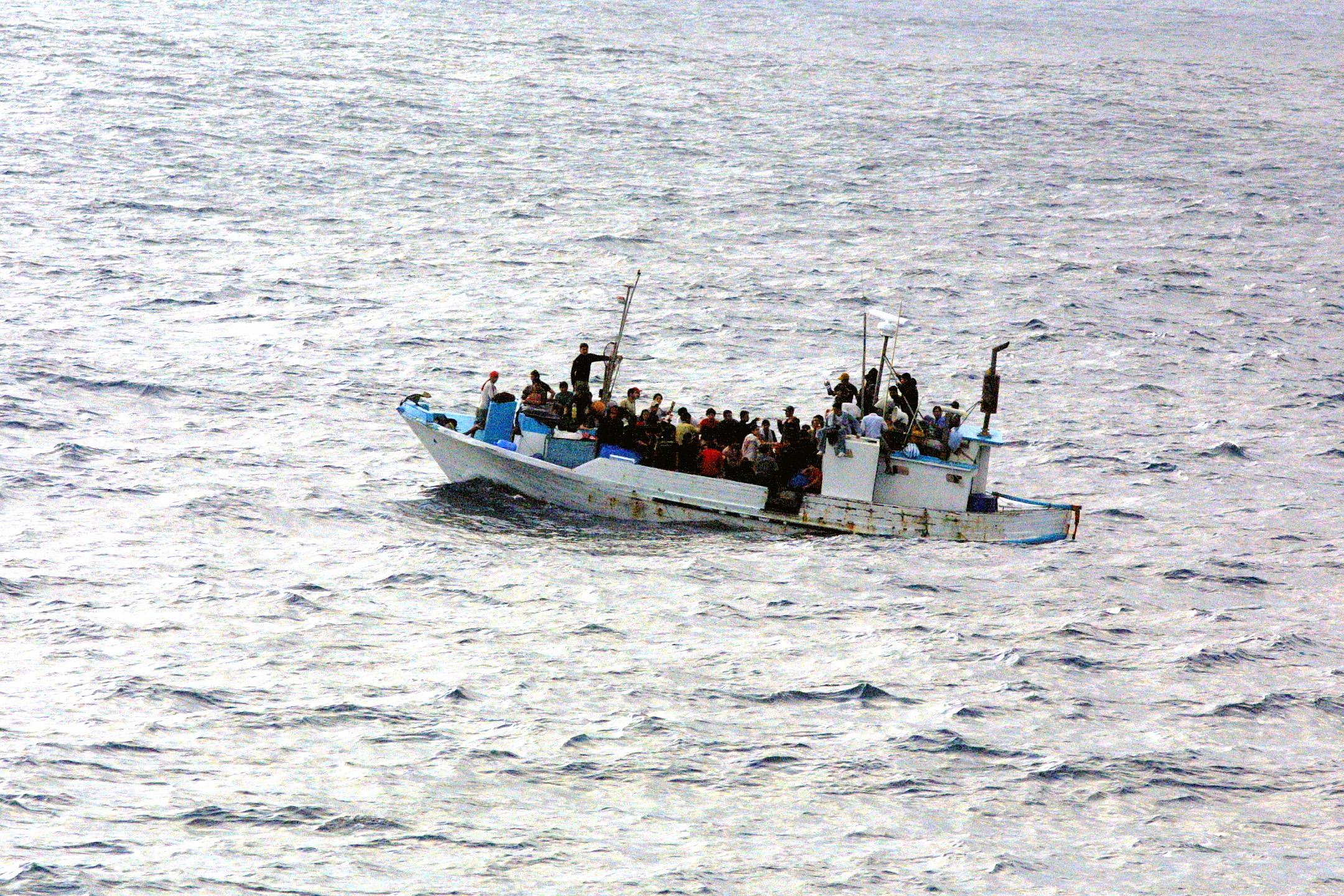The Government wants to stop the boats. How about sinking them?
If the overriding 'good' of the current policy regarding those seeking asylum is to, once and for all, prevent people from risking the journey across the Indian ocean, drastic action is necessary. Suppose that the Navy simply sank every illegal vessel that entered Australian waters. This policy would provide the strongest possible deterrent for all future boat people. Probably a single boat, a mere few hundred souls, would achieve the goal.
 Indeed, since the people on the unfortunate vessel are going to end up dead anyway, camera footage of some splutterers climbing aboard naval vessels only to be hurled back into the sea at gunpoint would be a real media moment. No one would ever want to come to this country again (and a few of us might want to leave).
Indeed, since the people on the unfortunate vessel are going to end up dead anyway, camera footage of some splutterers climbing aboard naval vessels only to be hurled back into the sea at gunpoint would be a real media moment. No one would ever want to come to this country again (and a few of us might want to leave).
It has taken a while, but it now appears that both the major parties, and a good deal of their support base, have reached agreement in principle on a tough stance towards boat people. The majority of voters, assailed by the twin fears of terrorism and the “wrong kind of person” entering the country, are broadly supportive of a “whatever it takes” approach to dissuading asylum seekers from coming to our shores.
It's hard to deny that these concerns should have some weight when policies are crafted, but what is more debateable is the basis on which the recent policies have achieved such wide acceptance.
“The ends justifies the means” captures the broad spirit of the time when it comes to the way we organise our society. It's clear that we have witnessed an increased tendency to judge policies purely on their consequences regardless of the path taken there. Ethicists call this “consequentialism”. For example, consequentialism can be glimpsed in the tenets of free market economics where the bottom line is all that counts. Such thinking is not confined to markets, but has leached into our thinking more generally.
The driving force of the current policy regarding refugees emerges directly from consequentialism: tough treatment now will deter future arrivals down the track.
It is important to realise, too, that this line of thought can be compassionate, which is why it has penetrated some notably left-leaning political minds. Stopping people from risking their lives is surely a compassionate goal?
Proponents of the current tough stance on refugees are being more accurate than they realise when they dismiss concerns about inalienable human rights, or God-given dignity of refugees as “idealistic”. The alternative to consequentialism is indeed to embrace some principles – ideals, if you will – whether or not they are convenient or “work” in a straightforward way.
It is arguably good to be idealistic in this sense, though, because being immediately effective is not always a good thing. Consequentialist policies could be put forward that work too well for their own good, hence the extreme example of torpedoing boats on arrival.
On purely consequentialist criteria, this would be a good policy. The bottom line is that a few hundred bad consequences, in the form of a sunken vessel, can be traded off for possibly tens of thousands of good consequences in the future. Think of all the misery that those later voyagers will be spared by never setting out on their perilous journey here?
According to this way of thinking, the unbending will of the Government's current plan represents good policy too. The recent death of one man in detention will have its own invaluable deterrent effect.
Any consequentialist, irrespective of their valuation of human life, should pursue these policies. As long as the number of travellers that are stopped is bigger than the number who perish up front, in the sea or in a riot, any calculation that values people equally will pass a cost benefit analysis. However, it will be most appealing to compassionate consequentialists who give the highest weight to the net balance of people saved.
Nor is it any good objecting to the splutterer overboard moment, or inhumane detention, on the basis that it sets a bad example. If consequences, and not the means to them, are all that matters, this is in fact the right stance of policy. Therefore a good, not bad, example would be being offered to the world. Other countries might adopt our policy, and the scourge of people smuggling might forever be solved.
I do not mean, by my illustration, to suggest that our politicians shouldn't concern themselves with consequences at all. The error of consequentialism is not that it considers consequences, but that it so fixates on them that the morality of the means is no longer important. Of course consequences of actions are important, in public policy no less than in everyday life.
A principled refugee policy would recognise this. But, in addition, it would also draw on good ideals and refuse, sometimes at great inconvenience and expense, to bend international law or mistreat people as a means to an end.
Dr Gordon Menzies is Associate Professor of Economics at the University of Technology in Sydney, and a Fellow of the Centre for Public Christianity.
This article originally appeared at The Drum.


